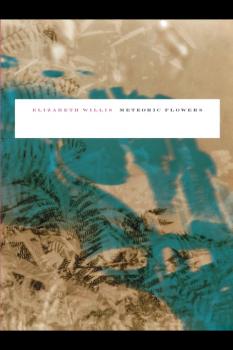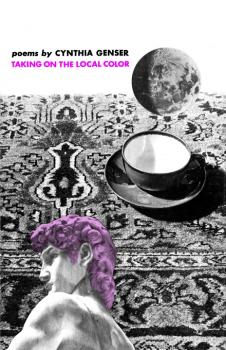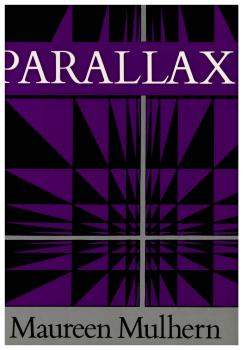Ingram
Все книги издательства IngramEmpire of Dirt
<P>Britain is widely considered the cradle of independent music culture. Bands like Radiohead and Belle and Sebastian, which epitomize indie music's sounds and attitudes, have spawned worldwide fanbases. This in-depth study of the British independent music scene explores how the behavior of fans, artists, and music industry professionals produce a community with a specific aesthetic based on moral values. Author Wendy Fonarow, a scholar with years of experience in the various sectors of the indie music scene, examines the indie music «gig» as a ritual in which all participants are actively involved. This ritual allows participants to play with cultural norms regarding appropriate behavior, especially in the domains of sex and creativity. Her investigation uncovers the motivations of audience members when they first enter the community and how their positions change over time so that the gig functions for most members as a rite of passage. Empire of Dirt sheds new light on music, gender roles, emotion, subjectivity, embodiment, and authenticity.</P>
Taking on the Local Color
<P>Cynthia Genser's landscapes, like those of D.H. Lawrence, are analogues of human emotions; her men and women exist in their effects-prototypes one minute, passionate and distinctly visible individuals the next. Person and place invite the reader into an adventure that begins and ends everywhere.</P><P>The language employed throughout is voluptuous, sensuous, yet precise. The appeal is to all the senses as well as to reason and intelligence: the poems, seamed with a difficult, sweaty beauty, stimulate every pleasure center. But pure language play also leads to hard, intelligent sense.</P><P>Of her own work, Cynthia Genser has said, «Although I belong to no special school or group, I align my poetry with the work of others aiming their metaphors at the banality and reductionism of our world-at the terror or planned obsolescence, Vogue Magazine, the threat of nuclear warfare. I cannot agree more with the Marxist Henri Lefebvre that poetry is the enemy and eventual victor in the war against 'terrorism' and the terrorist society we now live in.»</P>
The Begum's Millions
<P>When two European scientists unexpectedly inherit an Indian rajah's fortune, each builds an experimental city of his dreams in the wilds of the American Northwest. France-Ville is a harmonious urban community devoted to health and hygiene, the specialty of its French founder, Dr. Fran&#231;ois Sarrasin. Stahlstadt, or City of Steel, is a fortress-like factory town devoted to the manufacture of high-tech weapons of war. Its German creator, the fanatically pro-Aryan Herr Schultze, is Verne's first truly evil scientist. In his quest for world domination and racial supremacy, Schultze decides to showcase his deadly wares by destroying France-Ville and all its inhabitants. Both prescient and cautionary, The Begum's Millions is a masterpiece of scientific and political speculation and constitutes one of the earliest technological utopia/dystopias in Western literature. This Wesleyan edition features notes, appendices, and a critical introduction as well as all the illustrations from the original French edition.</P>
About Writing
<P>Award-winning novelist Samuel R. Delany has written a book for creative writers to place alongside E. M. Forster's Aspects of the Novel and Lajos Egri's Art of Dramatic Writing. Taking up specifics (When do flashbacks work, and when should you avoid them? How do you make characters both vivid and sympathetic?) and generalities (How are novels structured? How do writers establish serious literary reputations today?), Delany also examines the condition of the contemporary creative writer and how it differs from that of the writer in the years of Hemingway, Fitzgerald, and the high Modernists. Like a private writing tutorial, About Writing treats each topic with clarity and insight. Here is an indispensable companion for serious writers everywhere.</P>
Parallax
<P>A parallax (the apparent displacement or change caused by the position of observation; alteration—Oxford English Dictionary) is a perception. The perspective here radically shifts from a person perceiving to a person interpreting. Maureen Mulhern builds on images: a fish twisting at the tail, the merciless rain, a cold translucent hand; and these images gather into a cyclical, fluid perception: «such complete light passing/Through two bodies; a moment/of suspension, efore a wave leans/Into the next wave, descending back, a slight/Vertigo of gravity between us.»</P>
Chambers
<P>Chambers is a virtually complete collection of composer Alvin Lucier's major works from 1965 to 1977, interspersed with twelve interviews with the composer by Douglas Simon. Each score is written in prose and may be read by musicians as instructions for performance or by general readers as descriptions of imaginary musical activities. In response to Simon's searching questions, Lucier expands on each composition, not only explaining its genesis and development but also revealing its importance to the vigorously experimental American tradition to which Alvin Lucier belongs.</P><P>Many of his compositions jolt conventional notions of the role of composer, performer, and listener, and the spaces in which they play and listen. His works are scored for an astonishing range of instruments: seashells, subway stations, toy crickets, sonar guns, violins, synthesizers, bird calls, and Bunsen burners. All are unique explorations of acoustic phenomena –; echoes, brain waves, room resonances –; and radically transform the idea of music as metaphor into that of music as physical fact.</P>
Continued
<P>Continued is a selection of poems by Piotr Sommer, spanning his career to date. A kind of poetic utterance, these «talk poems» are devoid of any singsong quality yet faithfully preserve all the melodies and rhythms of colloquial speech. Events and objects of ordinary, everyday life are related and described by the speaker in a deliberately deadpan manner. Yet a closer look at the language he uses, with all its ironic inflections and subtle «intermeanings,» reveals that the poem's «message» should be identified more with the way it is spoken than with what it says. The poems in this volume were translated into English with the help of other notable poets, writers, and translators, including John Ashbery, D.J. Enright, and Douglas Dunn.</P>
Barbed Wire
<P>In this original and controversial book, historian and philosopher Reviel Netz explores the development of a controlling and pain-inducing technology—barbed wire. Surveying its development from 1874 to 1954, Netz describes its use to control cattle during the colonization of the American West and to control people in Nazi concentration camps and the Russian Gulag. Physical control over space was no longer symbolic after 1874.</P><P>This is a history told from the perspective of its victims. With vivid examples of the interconnectedness of humans, animals, and the environment, this dramatic account of barbed wire presents modern history through the lens of motion being prevented. Drawing together the history of humans and animals, Netz delivers a compelling new perspective on the issues of colonialism, capitalism, warfare, globalization, violence, and suffering. Theoretically sophisticated but written with a broad readership in mind, Barbed Wire calls for nothing less than a reconsideration of modernity.</P>
Door in the Mountain
<P><B>Winner of the National Book Award in Poetry (2004)</B></P><P>Since the 1965 publication of her first book, Dream Barker, selected for the Yale Younger Poets Award, Jean Valentine has published eight collections of poetry to critical acclaim. Spare and intensely-felt, Valentine's poems present experience as only imperfectly graspable. This volume gathers together all of Valentine's published poems and includes a new collection, «Door in the Mountain.»</P><P>Valentine's poetry is as recognizable as the slant truth of a dream. She is a brave, unshirking poet who speaks with fire on the great subjects—love, and death, and the soul. Her images—strange, canny visions of the unknown self—clang with the authenticity of real experience. This is an urgent art that wants to heal what it touches, a poetry that wants to tell, intimately, the whole life.</P>









